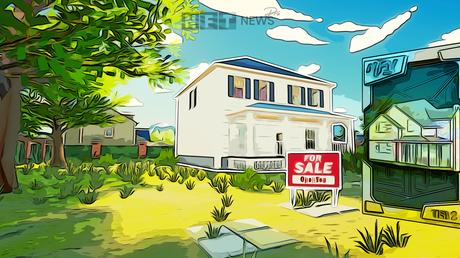
Since the earliest days of the NFT conversation, it has been a central topic, and each week, a growing number of NFT use cases emerge.
Look no further than the real estate market this week, as the internet has been buzzing about a particular South Carolina home whose deed was tokenized and sold on OpenSea over the weekend.
Utility, At Last Art has been the foundation for NFT growth, and utility will propel it to the next level.
This in no way diminishes or diminishes art-driven NFTs; rather, it speaks to the momentum that NFTs require to penetrate even more mainstream applications.
Although utility-driven NFTs have been around for a while, we are still in the early stages of the emergence of ever-more-unique NFT use cases.
Real estate is the most recent example of this, as a home in Columbia, South Carolina was recently sold via an OpenSea listing.
The NFT was listed by a web3 property managed by real estate fintech company Roofstock, and the three-bedroom residence sold for $175,000.
OpenSea was used for the transaction, and property characteristics, such as the square footage and year of construction, were displayed via OpenSea’s NFT trait display.
In addition, the organization has a native marketplace dashboard powered by Origin Protocol.
It is a collection of new tools introduced to the real estate industry.

The ConclusionRoofstock Onchain, a subsidiary of Roofstock, provides a clean UI overlay over the entire listing, while still displaying the Etherscan transaction in a clear and prompt manner.
The transaction took place via USDC on ERC-20, and it represents yet another unique application for NFTs.
Real estate projects rooted in web3 and NFTs include projects that mimic real-world real estate assets and projects that position properties as micro investments on-chain, among others.
Be vigilant as new NFT market participants continue to place a premium on utility and as the number of new entrants increases.
